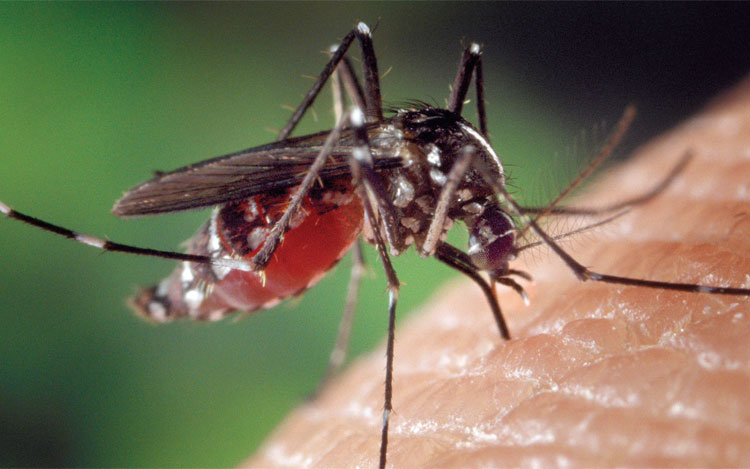AS FLORIDA’S LATE-AFTERNOON showers continue to roll in, the standing water around our homes, schools, and areas of recreation continue to swell. While this may put a damper on an afternoon of outdoor activities, what many do not realize is that this standing water also cultivates a breeding ground for pesky bugs like mosquitoes.
No one enjoys being bitten by mosquitoes, especially considering the itchy bites they leave behind. More importantly, mosquitoes can be a significant public health risk. Mosquitoes are capable of transmitting viruses that can make people ill. Mosquitoes can carry different diseases such as West Nile, Eastern Equine Encephalitis, Chikungunya, Dengue, and Zika, just to name a few.
These types of diseases are called arboviruses. If a person or animal is bitten by an infected mosquito caring an arbovirus, the disease can quickly spread. Several of the mosquito species found in Florida are capable of transmitting diseases to humans, horses, and other animals. Symptoms of these illnesses can range from mild to very severe.
Avoiding mosquito bites is the key to preventing any type of mosquito-borne diseases. Residents and visitors are reminded that the best way to protect themselves is to prevent mosquito bites by practicing good drain and cover methods:
DRAIN standing water to stop mosquitoes from multiplying.
• Drain water from garbage cans, house gutters, buckets, pool covers, coolers, toys, flower pots, or any other containers where sprinkler or rain water has collected.
• Discard old tires, drums, bottles, cans, pots and pans, broken appliances, and other items that aren’t being used.
• Empty and clean birdbaths and pet’s water bowls at least once or twice a week.
• Protect boats and vehicles from rain with tarps that don’t accumulate water.
• Maintain swimming pools in good condition and keep them appropriately chlorinated. Empty plastic swimming pools when not in use.
COVER skin with clothing or insect repellent.
• CLOTHING — Wear shoes, socks, long pants, and long-sleeves. This type of protection may be necessary for people who must work in areas where mosquitoes are present.
• REPELLENT — Apply mosquito repellent to bare skin and clothing.
>> Always use repellents according to the label. Repellents with DEET, picaridin, oil of lemon eucalyptus, and IR3535 are effective.
>> EPA-approved repellent is safe for pregnant women to use.
>> Use mosquito netting to protect children younger than two months old.
COVER doors and windows with screens to keep mosquitoes out of your house.
• Repair broken screening on windows, doors, porches, and patios.Foreign travel can also increase a person’s risk to mosquito-borne diseases.
When traveling to foreign regions, whether it is for tourism, family visits, mission trips, or other reasons, be sure to use these same prevention methods to help control the spread of mosquito-borne illnesses.
If you have travelled to an area where mosquito-borne diseases are prevalent or think you may have been infected, please contact your physician immediately.
For more information about mosquito-borne diseases, including their signs and symptoms, visit floridahealth.gov or cdc.gov.
CREDIT
article by DR. JOY JACKSON
ABOUT THE AUTHOR: Dr. Joy Jackson, an internal medicine physician, serves the community as director of the Florida Department of Health in Polk County (DOH-Polk). For more information about FDOH-Polk, visit www.mypolkhealth.net.
